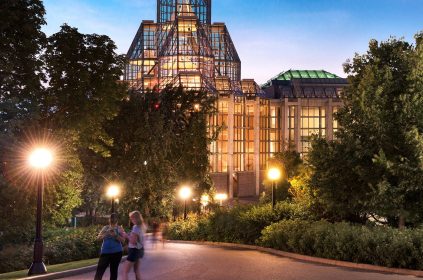MONTREAL — Sophie was 15 years old when she says her history teacher made comments about her breasts in front of the entire class.
She reported what happened to a support staff member at her high school. But instead of being taken seriously and getting support, she said the employee told her the teacher didn’t mean anything bad by what he said.
“It was like they were trying to trivialize my situation and (tell me) that in the end, I don’t need to get upset, I don’t need to be shocked, I don’t need to be frustrated by it,” said Sophie, which is not her real name. The Montreal woman, now 20, spoke on condition of anonymity because of the sensitive nature of her allegations.
“Well no, it’s not normal. It’s not normal to trivialize and normalize that situation,” she said in a recent interview.
Sophie is part of a group of current and former Quebec high school students who are demanding the provincial government adopt a law specifically targeting sexual violence at elementary and high schools. They want those institutions to have clear protocols to respond to incidents between students or between a student and teacher or other adult in the school.
Quebec’s Education Department, however, says there is already a legal framework in place to protect children against violence.
Sophie and her group are undaunted. They say the status quo isn’t working and that Quebec students are too afraid to come forward when they are sexually harassed, abused or assaulted by peers or staff in schools.
Their campaign for a provincial law dates back a few years, but it recently regained momentum after a wave of public denunciations of sexual violence began on social media across Quebec in July.
Clorianne Augustin, a Montreal youth worker who supports the students’ call for a law, says schools fail to take sexual violence seriously.
She said educators often do not respond quickly when a student comes forward to disclose abuse, either because they are overworked or they are uncomfortable and don’t have the necessary training.
“The young person is stuck with the psychological ramifications,” Augustin said in recent interview. “Some youth told me, ‘I don’t want to go to school. I don’t want to walk next to my abuser. I don’t want to be surrounded by people who are going to tell me that I wasn’t supposed to denounce.’ … All these repercussions are serious.”
A spokeswoman for Quebec’s Education Department said the government has no plans to pass a law to specifically deal with sexual violence in elementary and high schools.
“Intervention protocols for violence, including sexual violence, are already required in elementary and high schools,” the department’s spokeswoman, Esther Chouinard, said in an email. She pointed to the province’s Education Act, which makes it mandatory for public and private schools in Quebec to have a plan to prevent bullying and violence in all its forms and provide support for students.
Under Quebec’s current legislation, principals are tasked with drafting a plan to address violence, which must be approved by their schools’ governing boards.
But Augustin said the current system is insufficient, as students continue to say it is difficult to denounce sexual violence because the subject remains taboo and school staff are not trained to respond. “That means it’s not working,” she said.
And while Chouinard said specific laws aren’t needed for elementary and high schools, Quebec passed legislation in 2017 requiring post-secondary institutions adopt anti-sexual violence protocols. That law requires staff be trained on know how to respond to sexual violence allegations and provide services to victims should they wish to make a complaint.
In January, the province’s largest public school board, the Commission scolaire de Montreal, adopted intervention protocols regarding sexual violence in its elementary and high schools.
That board, which counts over 16,000 staff and about 114,000 students, says it plans to train hundreds of educators who work closely with students “to welcome and listen to all victims of sexual violence in order to direct them to appropriate resources.”
Augustin said if the province’s universities and junior colleges have a specific law designed to protect students, “I don’t understand why high school and elementary school students can’t also benefit from a law.”
For Sophie, a law would help make sure students of all ages across Quebec feel safe in their schools — and protect the next generation of students from experiencing the same type of sexual abuse she faced.
“School is my second home and I would like to feel safe there,” she said. “I would like my younger brother to feel safe there, and if something were to happen to him, that he is able to denounce it and feel supported afterwards.”
This report by The Canadian Press was first published Aug. 16, 2020.
Jillian Kestler-D’Amours, The Canadian Press













